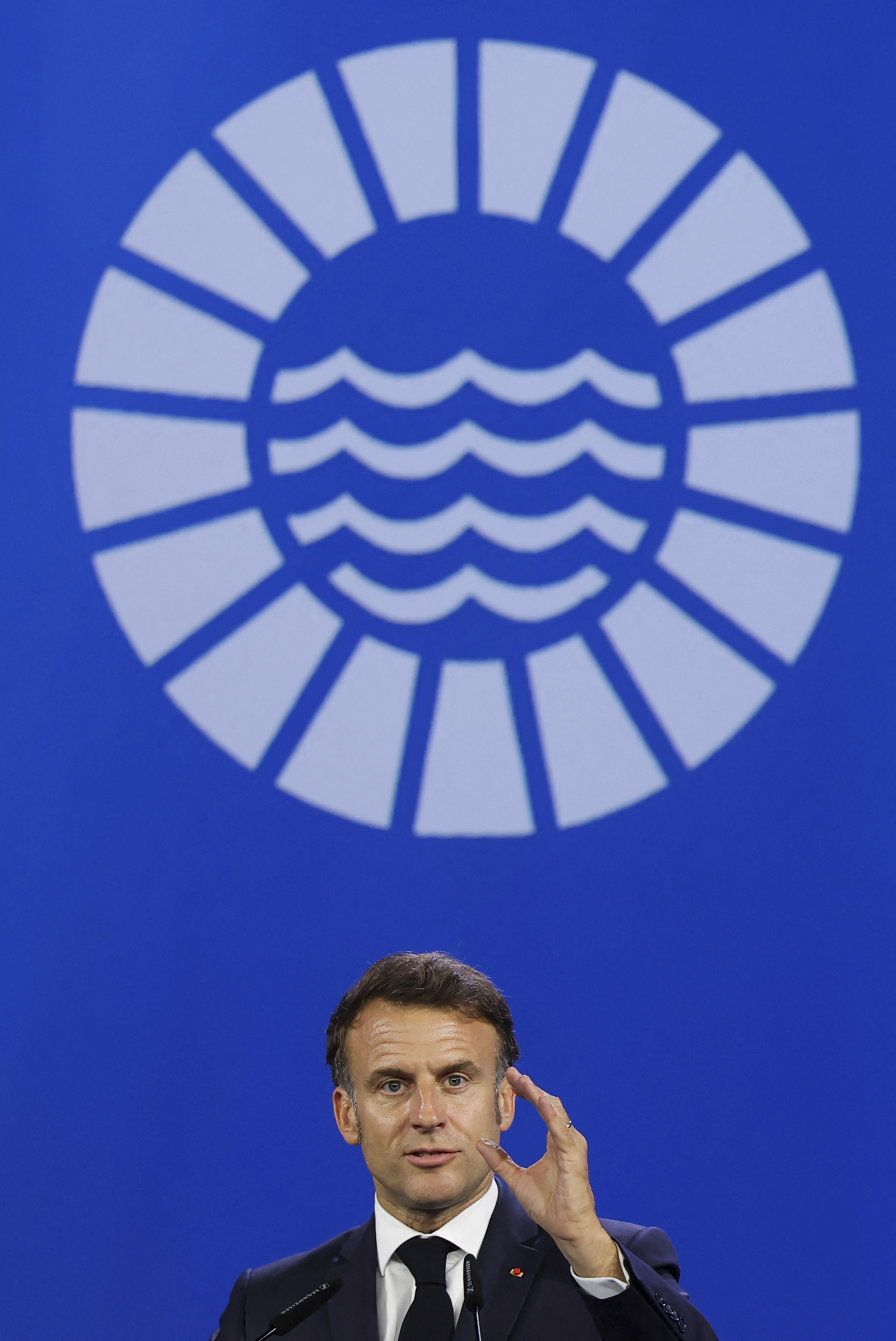Donald Trump has definitively left Europe sidelined with his decision to bomb, overnight, three nuclear facilities in Iran and not respect the two-week "window" for negotiating a peaceful solution. The military operation took place less than 48 hours after the meeting in Geneva of European foreign ministers with their Iranian counterpart, Abbas Araghchi, orchestrated and endorsed by Emmanuel Macron, who on the same Saturday announced his intention to "accelerate" the diplomatic path and try to get Tehran to admit the United States to the negotiating table.
Macron acknowledged his "concern" on Sunday over the attacks carried out by the United States and urgently convened the National Defense and Security Council. In a desperate attempt to keep the diplomatic path open, the French president had a phone conversation with Iranian President Masoud Pezeshkian, demanding "de-escalation and a return to diplomatic negotiations." The Iranian leader responded by stating that his country cannot be deprived of the "right to peaceful nuclear activities by a war."
The European response demanding that Iran "not take further actions that could destabilize the region" did not come until late Sunday afternoon. In a joint statement, France, the United Kingdom, and Germany urged Tehran to return to the negotiating table and reminded that its nuclear program "cannot be a threat to regional security." "No strictly military response can achieve the desired results," Macron warned at the start of his Defense Council. "This new phase requires vigilance and decisive action on our part, prioritizing the safety of our citizens, both in Iran and in Israel."
Prior to the statement, British Prime Minister Keir Starmer preempted other leaders by prematurely endorsing Trump's actions and emphasizing that the Iranian nuclear program "poses a serious threat to international security." German Chancellor Friedrich Merz directly urged Iran to negotiate with the United States and Israel "a diplomatic solution to the conflict."
European Commission Vice President Kaja Kallas, who participated in the Geneva meeting on Friday, urged "all parties to step back, return to the negotiating table, and avoid further escalation". Kallas urgently convened the EU Foreign Ministers for tomorrow Monday to coordinate a response, now that the approach to Iran initiated in Geneva has apparently been blown apart.
The only one who seemed to know what was being prepared was Keir Starmer, in statements to the BBC's Sunday Morning program: "Iran cannot be allowed to develop a nuclear weapon and the United States has intervened to alleviate that threat. We call on Iran to return to the negotiating table and reach a diplomatic solution to this crisis."
Business Secretary Jonathan Reynolds went even further than Starmer and stated that the British government supports the "preventive" attack to prevent Iran from developing the atomic bomb: "European countries proposed a diplomatic course of action [requiring the inclusion of the United States at the negotiating table] and Iran rejected it.
Foreign Secretary David Lammy, who also participated in the Geneva meeting and welcomed "the two-week window to reach a truce" - after Donald Trump's mistaken announcement - found himself in a compromised position. Lammy met with US Secretary of State Marco Rubio on Thursday, who allegedly briefed him on the Trump Administration's plans.
"France has observed with concern the attacks carried out by the United States against three Iranian nuclear facilities", declared French Foreign Minister Jean-Noël Barrot, who emphasized that Paris did not participate in the planning or execution. Barrot urged the parties to "act with moderation to avoid any escalation that could lead to a prolongation of the conflict" and advocated for "a negotiated solution within the framework of the Non-Proliferation Treaty."
Like in the United Kingdom, where the Conservative Party and Nigel Farage's Reform UK closed ranks with Trump, the hard right in France aligned with Washington. "It has been an impressive and effective military action, to prevent an Islamist regime from having the nuclear bomb", declared Jean Philippe Tanguy, deputy president of the National Rally (RN) parliamentary group.
The leader of France Insoumise, Jean-Luc Mélenchon, condemned the attacks and accused Donald Trump and Benjamin Netanyahu of "endangering humanity to satisfy their need for unrestrained domination." "These two take advantage of the hatred towards the Iranian regime to achieve acceptance of the law of the strongest through genocide and bombings," Mélenchon wrote on his X account. "France must refuse to align with this deadly duo and raise the flag of peace without pretensions."
